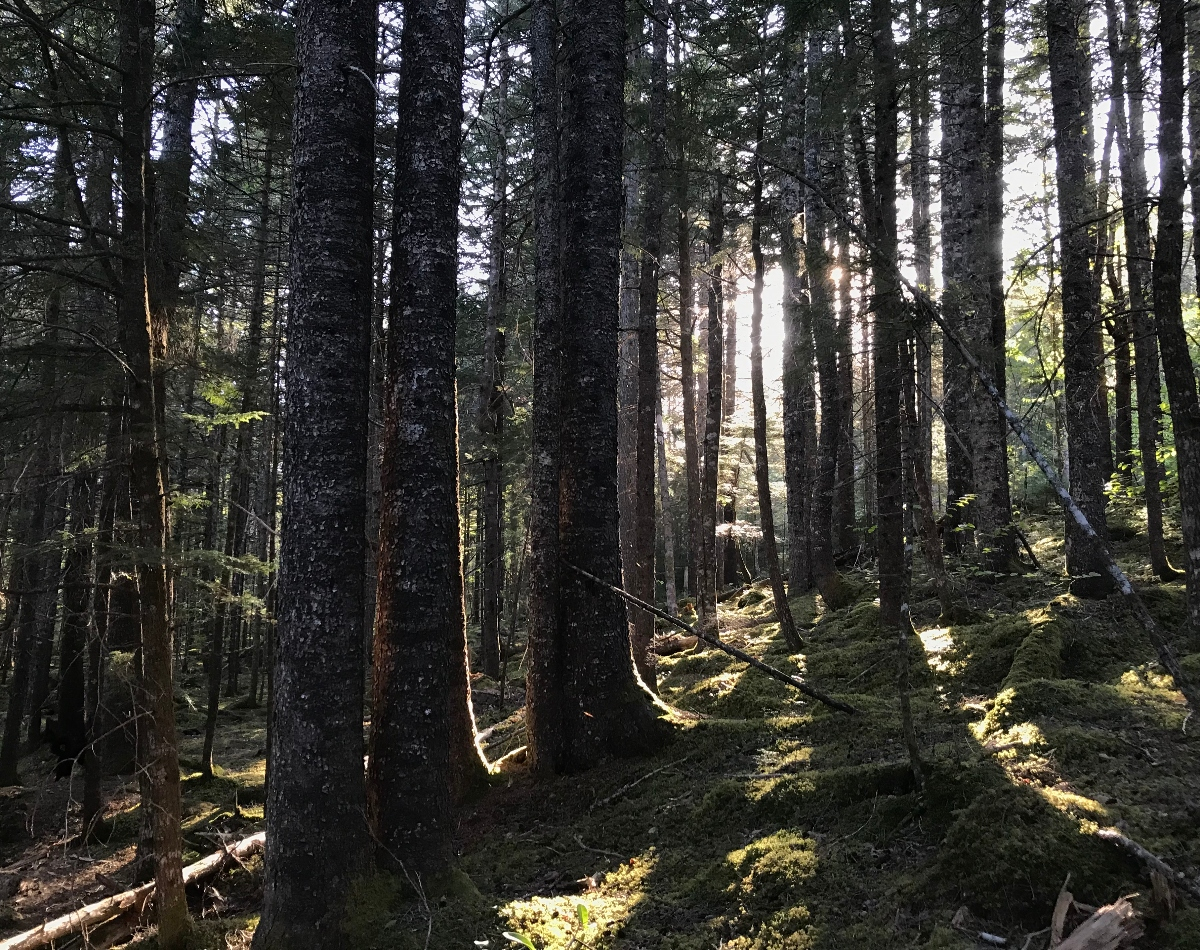Support strong Canadian climate journalism for 2025
In Nova Scotia, forests are potential wellsprings of biodiversity, sustainable livelihoods, and long-term climate change mitigation.
Yet despite that potential, thousands of acres of forests are clearcut every year in the name of short-term profit.
A company called Growing Forests is now aiming to combat that immediate threat, using ecological forestry and carbon offsets as an alternative to unsustainable practices.
While the project has the potential to protect the long-term health of the forest — and of the planet — Dale Prest, Growing Forests’ CEO, says at its heart the company is motivated by a shared interest in rural communities: to protect and restore forests, and maintain local ownership of the land.
“Carbon is just the way we pay for that to happen,” he says.
Growing Forests was born out of a refrain Prest would hear from visiting friends across Nova Scotia. Based in Musquodoboit Harbour, Prest has a background that includes working with environmental charities, and before starting Growing Forests, running a carbon-focused forestry company, including a small firewood business.
Sitting around the kitchen table, he’d be told that a woodlot owner in the area passed away or moved into a seniors’ home, and that the forest, upon being sold — or inherited by a family member facing a substantial bill from capital gains tax — was promptly clearcut.
As woodlot owners age, this trend has accelerated.
With nearly 50 per cent of the province’s forests in the hands of small woodlot owners, this has the potential to affect a significant proportion of the landscape; at present, between 20,000 and 40,000 hectares of private land are clearcut every year, says Prest.
“The natural inclination felt sitting around those tables was, ‘surely there's something we can do about this if only we could pool our resources,’” he says.
The result was Growing Forests, which has already raised $750,000 from 75 small investors. With this, the company has purchased roughly 900 acres of forest from woodlot owners.
One of those owners is Charles Thompson, whose family’s woodlot is in Middle River, Cape Breton. As Thompson, who is in his 70s, grew older, he began looking for options for the future of his forest.
“I’m sorry I have to sell it, in a way,” he says.
But given that he had to sell it, he also didn’t want it to be destroyed.
Then, this April, Thompson went to the annual wood producers’ conference, where he stumbled across Growing Forests’ booth.
“I wanted somebody that was not going to knock everything down, and they seem to have a good idea,” he says.
The model of Growing Forests continues the legacy of small woodlot owners by practising a model of ecological forestry meant to sustain harvesting for generations; income which is then used to help pay for the purchase of land.
But it’s not the only long-term principle at work in Growing Forests’ model.
The Wabanaki-Acadian forest — the mixed forest that blankets the landscape in eastern Canada and the northeastern United States — is naturally resilient to large-scale disturbance from sources such as insects, fires, and windstorms (though as the Nova Scotia wildfires of 2023 showed, the forest is not immune to the effects of climate change). This capacity to stay stable for centuries makes Nova Scotia’s forests an ideal partner in sequestering carbon.
Growing Forests is currently working through the certification process to offer offsets based on their forests, which would in turn contribute more money toward the purchase of land.
In recent years, forest-based offset initiatives have come under fire for either disempowering local communities — especially in low-income countries — or for failing to deliver on their promise. A 2023 investigation by The Guardian and others found that 90 per cent of the offsets sold by a leading offset certifier were “worthless,” meaning they didn’t deliver any meaningful reduction in carbon.
Prest is aware of these risks, but says the company’s approach offers a different model, by focusing on community ownership and local priorities around reducing clear-cutting.
“I really think we’re one of the best examples anywhere, of how communities can coordinate and mobilize to use carbon markets in a way that restores the local environment,” he says.
Growing Forests is now looking to raise additional funds and plans to start selling offset credits by this summer.
Prest adds that ultimately, Growing Forests’ vision centres around a conceptual shift, looking at the forest not simply as a place from which resources can be extracted — whether those resources are timber or carbon credits — but as a partner in creating a sustainable future.
“Forests, especially in the immediate term, are our greatest allies against climate change, and we can be doing so much more.”
This story is being shared by the Climate Story Network, an initiative of Climate Focus, a non-profit organization dedicated to covering stories about community climate solutions.






Comments
Great article. This demonstrates that forestry can follow a middle path, one that addresses ownership and stewardship first and foremost. I believe there is a very effective role for forest land trusts and local management or ownership. This is also an opportunity to use forest ecology to study and manage the effects of climate change, which will no doubt change the species mix.